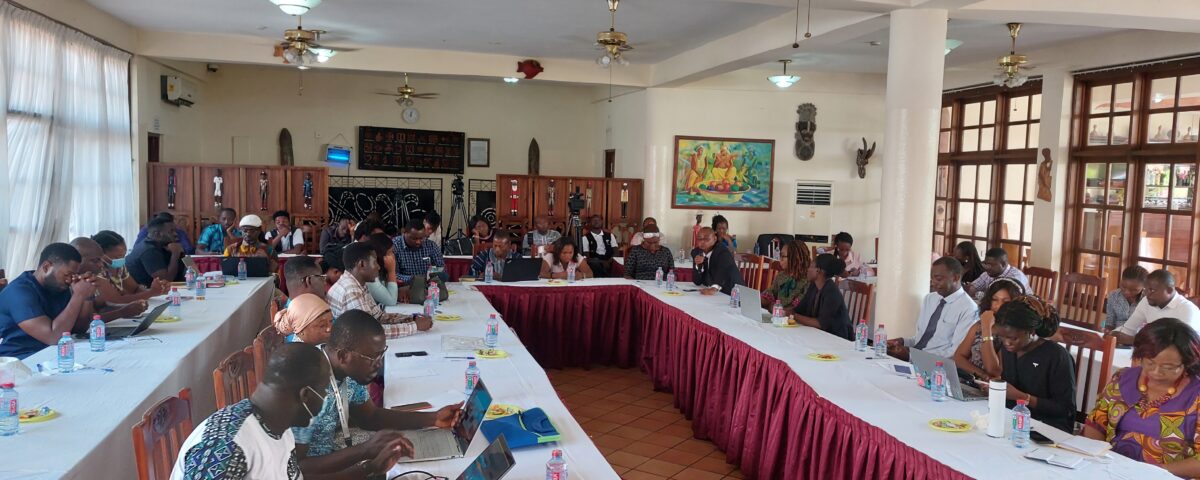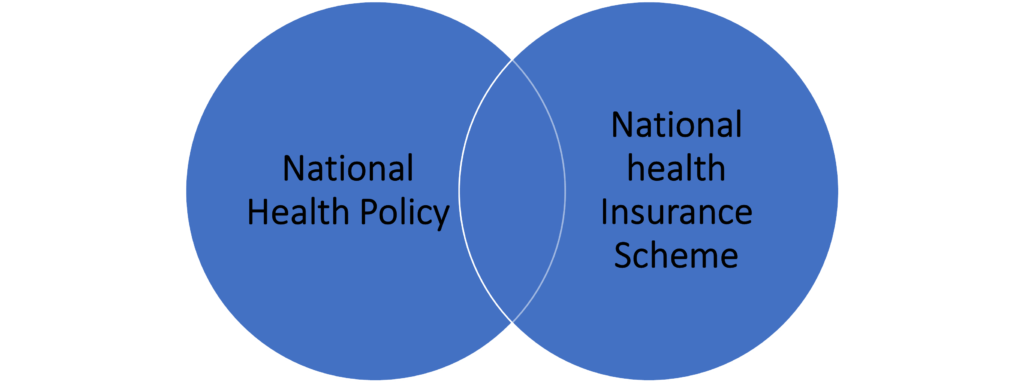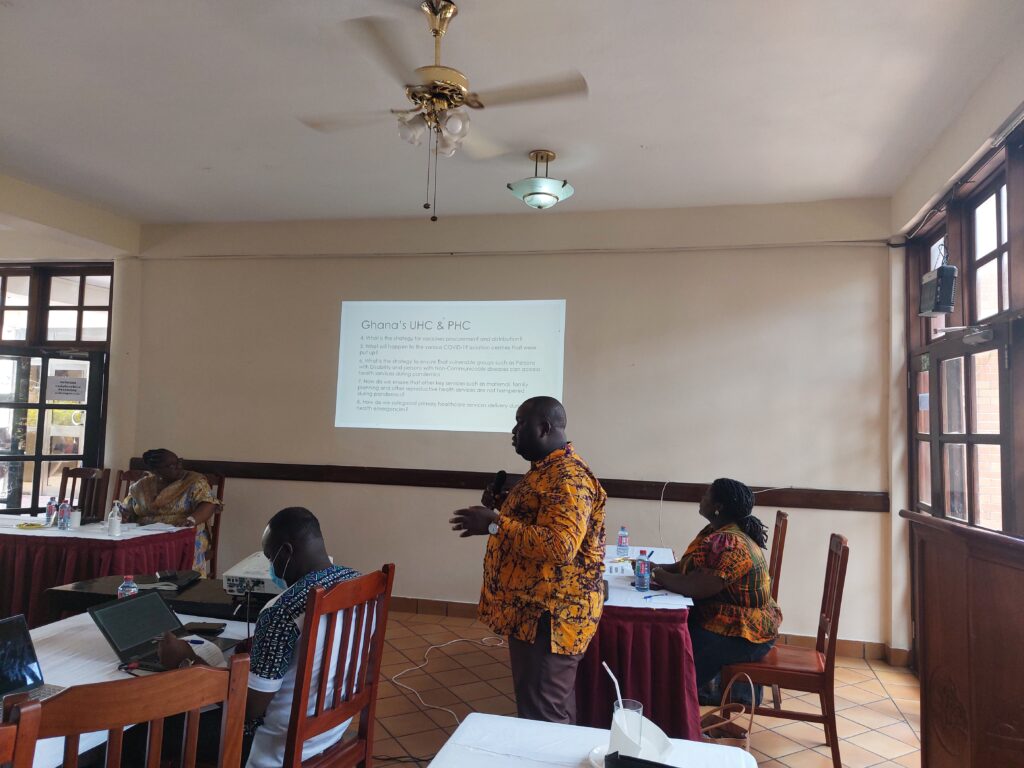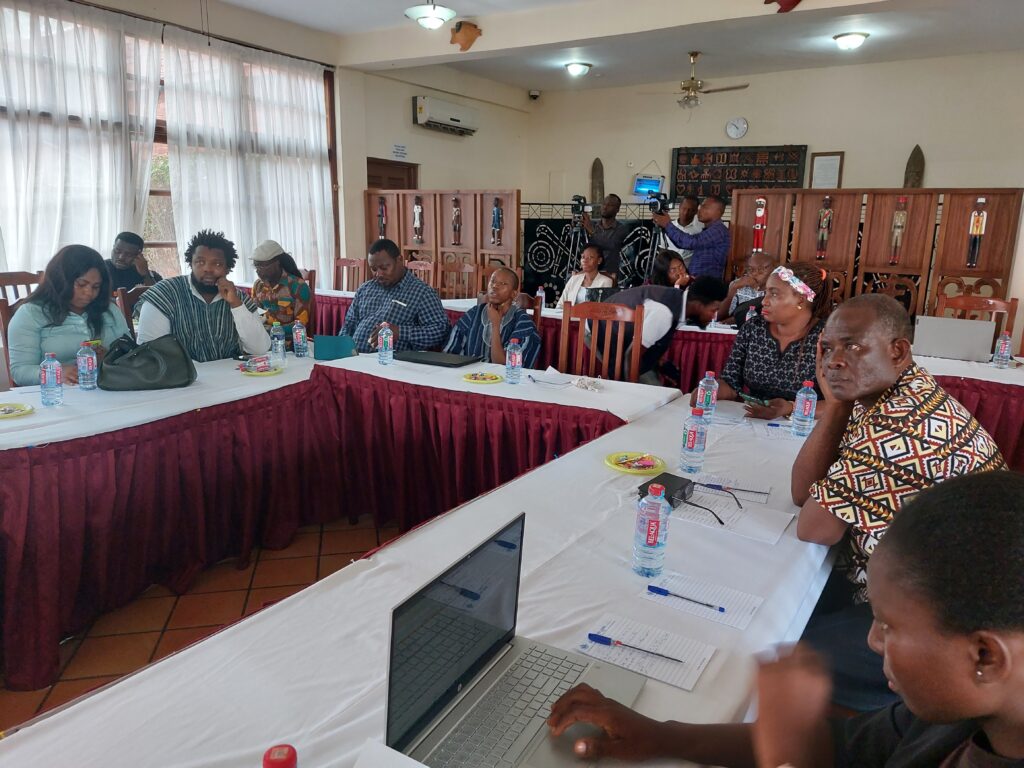CSOs FORUM ON UNIVERSAL HEALTH COVERAGE HELD IN ACCRA

Everyone deserves an equal access to quality and affordable healthcare in their quest to thrive and contribute their quota to the economies they find themselves in. The general wellbeing of a country gives a clear indication of how resilient and progressive its economy is. The importance of a robust system of healthcare that is intentional and anchored by preventive, curative and promotive measures cannot be overemphasized if a country’s development goals are to be achieved.
For Ghana, the two main factors that serve as drivers to the achievement of, and equitable access to health include; Primary Healthcare policies, and the National Health Insurance Scheme. These combine to serve as the basis for the country’s Universal Health Coverage attainment. This places the unique role of policies and their areas of focus in a very crucial position, when considering key determinants of health and the extent of their contribution to equitable healthcare. These are shown in the table below.

Universal Health Coverage (UHC) is described by the World Health Organization as the point where “all people have access to the full range of quality health services they need, when and where they need them, without financial hardship. It covers the full continuum of essential health services, from health promotion to prevention, treatment, rehabilitation and palliative care”.
All countries have chosen their own paths to achieving UHC, and decide on which direction to go based on the specific needs of people in their societies. However, what is key in this journey remains the fact that healthcare is a basic right, that is respected and held in very high esteem.
GHANA’S PATH TO UNIVERSAL HEALTH COVERAGE.
To offer non-state actors the platform to take stock of progress made towards the attainment of UHC in Ghana, a National UHC Forum was convened by the Alliance for Reproductive Health and Rights under the theme: “Achieving UHC, Equitable Access to Quality Healthcare”.

In a presentation by Mr. Lucas Annan of the Ministry of Health’s Policy and Planning Department, it was indicated that the provisions in the National Health Policy are ones that have been inspired by the UN Sustainable Development Goals, specifically, the third goal that is focused on Good Health and Well- Being.
Part of the achievements and efforts leading to Ghana’s UHC achievement is the launch of the policy on Non-Communicable Diseases, this is to draw maximum attention to those conditions that have been somewhat neglected in the sector of healthcare.
Amidst the headways towards Universal Health Coverage, it was indicated that Ghana is confronted with what Mr. Annan described as the ‘Triple Transitional Phenomenon’ which include:
- Epidemiological Factors – that has to do with the complex burden of diseases comprising communicable, non- communicable, injuries, disabilities, and mental health challenges.
- Demographic Factors – which looks at the burden of a youthful population that need to be catered for in all their diversities as well as the aging population.
- Socio- economic Factors – where donor support for health related interventions have dwindled. This indicates the need to find alternative sources to mobilize even more resources to cater for the health needs of the populace.

THE INSURANCE OF HEALTH
As the National Health Policy of Ghana is inspired by the need to achieve quality healthcare for all no matter their statuses, the influence of international documents like UN Agenda 2030, UHC declaration, AU Agenda 2063 and Abuja Declaration have enabled the institution of packages like the National Health Insurance with some critical expectations of it.
To shed more light on the role of the National Health Insurance Scheme (NHIS) in Ghana’s UHC journey, a representative of the National Health Insurance Authority (Director of Research and Monitoring indicated that globally, health insurance package is supposed to take the 80- 80—20 path benefit to each country’s citizens. Thus, in granting access to the full range of health services needed, 80 percent of the population must be enrolled unto the NHIS, 80 percent of the healthcare burden should be covered by the insurance benefits package, and 20 percent should be the maximum out-of-pocket payment from those in need of healthcare services. Here, mention was made of some interventions put in place to fulfil the 80 per cent coverage target. These included the family planning package part of the NHIS benefits, as well as the breast cancer treatment cover.
Ghana’s NHIS, as of 2022 had covered 55 percent of the population with expansion for a wider reach being initiated in many other areas across the country, according to the National Health Authority presentation at the forum. The expectation is that the authority is able to take the needed steps in collaboration with other stakeholders to cover 80 percent of the populace that needs access to quality healthcare services.

EXPECTATIONS FROM CSOs
From the various CSOs represented, the need for government to remain committed to the provisions in the existing health policies was a priority. This is because, many policies have been formulated to guide and regulate the interventions to push the country towards the attainment of Universal Health Coverage, but resources allocated to those efforts are still not adequate, hence the need to strengthen commitment in that regard.
Other demands include the following.

Universal Health Coverage responsibility largely lies on the government to perform greater functions with its health agencies, in order to meet the health needs of the populace. With all the good intentions by way of policies, actions towards the policies are equally important with keen interest in the determinants. With the notable contribution from social and economic factors being the highest, more collaborations are needed for sensitization on a more preventive approach to healthcare than curative, as the latter dwindles so much resources from the country. CSOs must not be left out with all the potentials resting with their institutions so that ultimately, access to quality healthcare is given to all and not some. Representatives of the Children and Youth in Broadcasting – Curious Minds were present to amplify the call for the inclusion of young ones in key healthcare decisions and interventions. This will help reduce the strain on the health system due to unhealthy habits adopted by the youth, and make them better and healthy champions of UHC in Ghana.
